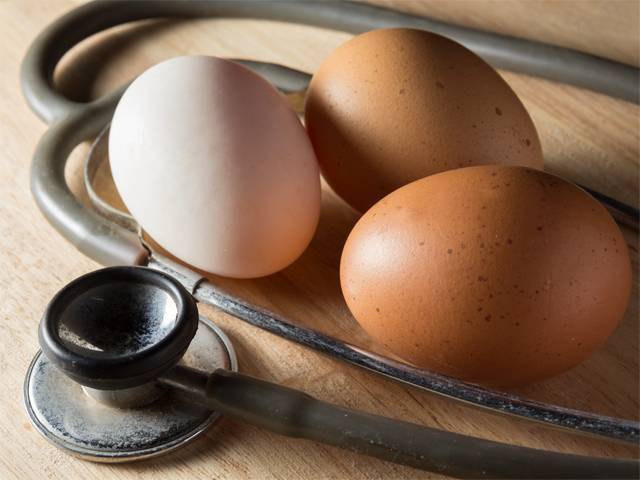Sharon Natoli Vitamin D Interview

Aussies Can Get 82% Of Daily Vitamin D Intake This Winter, For Just 40c
Vitamin D deficiency is common in Australia with almost a quarter of adults having a mild or moderate deficiency. Latest research from Australian Eggs found that an average serve of eggs (2 x 60g eggs) provides a substantial portion of the recommended dietary vitamin D intake, proving that eggs are one of the highest natural sources of vitamin D.
As advancements in research continues to uncover the proven nutritional benefits of the humble egg, Australians are upping their daily consumption to an average of 17 million eggs per day –that's approximately 245 eggs per person, per year.
Vitamin D deficiencies more than double in winter months, The Australian Health Survey reveals that deficiency rates range from 36% in winter to 14% in summer. Many Australians will be quick to reach for supplements with nearly half of Aussies said to take vitamins and supplements.
With the high cost of supplements and speculation around their health benefits, experts advise sticking to natural food sources where possible. With an average serve of eggs offering 82 per cent of the recommended dietary intake, eggs are a preferable choice for Aussies who would consider supplements and for those looking to boost their vitamin D levels this winter.
Australian General Practitioner, Dr Ginni Mansberg has commented: "Australians are confidently reaching for a carton of eggs more than ever before. In just one egg there are 11 different vitamins and nutrients, packed into just 300 kilojoules."
In Australia, it's actually very hard to get more than about 5 or 10 per cent of our D requirement from most food, because we don't fortify by adding vitamin D to many things. This could be a massive game changer for those suffering from Vitamin D deficiencies."
Vitamin D is essential for the body to absorb calcium effectively, which is important for bone health and muscle function. Severe vitamin D deficiencies could have major health ramifications – linked to serious conditions such as osteoporosis, diabetes and multiple sclerosis.
"Eggs might be able to help keep vitamin D levels high to lower the risk of disease, maintain strong bones and teeth, as well as lowering the risk of cardiovascular disease. Eggs are a highly nutritious food and should be included daily as part of a healthy and balanced diet," said Dr Mansberg.
 Interview with Sharon Natoli, Dietician and Leading Author
Interview with Sharon Natoli, Dietician and Leading Author
Question: Why are so many Australians suffering from mild or moderate vitamin D deficiency?
Sharon Natoli: This is a combination of spending more time in indoors, sun protection and that it is difficult for people to obtain all their vitamin D requirements from food alone.
Question: What symptoms are related to vitamin D deficiency?
Sharon Natoli: Muscle weakness can be a sign of vitamin D deficiency, and for older adults, can increase the risk of osteoporosis, falls and fractures. For most people however they won't be aware they have vitamin D deficiency without having a blood test done.
Question: How can we increase our vitamin D during winter without supplements?
Sharon Natoli: An average serve (2 eggs) provide 82% of the RDI for vitamin D so is an excellent way of helping meet requirements without supplements. Other sources of vitamin D include salmon, sardines, mushrooms, tuna, milk and cheese.
Question: Why is it usually so difficult to get our vitamin D requirement, from food?
Sharon Natoli: Because it is not found in high amounts in many foods. Our primary source is sun exposure. Vitamin D is slightly different to the other vitamins in terms of where it comes from.
Question: What other nutritional benefits do eggs have?
Sharon Natoli: They provide 11 different vitamins and minerals, are a good source of protein, omega-3s, antioxidants including lutein and zeaxanthin which are good for eye health and the fat in eggs is primarily from the healthy unsaturated types.
Question: Can you share your favourite egg recipe, with us?
Interview by Brooke Hunter
MORE
- The Good Fat Guide
- No Meat May
- Tahlia Francis Interview
- Scandi Aspect Kettle & Toaster
- Sugar Free Baking
- TACOS: Authentic Mexican Tacos The Playa...
- Susie Burrell Bounce Plant Protein Interview
- The Power of Flour
- Decadent Shakes
- The Beauty Chef's Cleanse Inner Beauty Powder
- Cake Boss: Wedding Special





